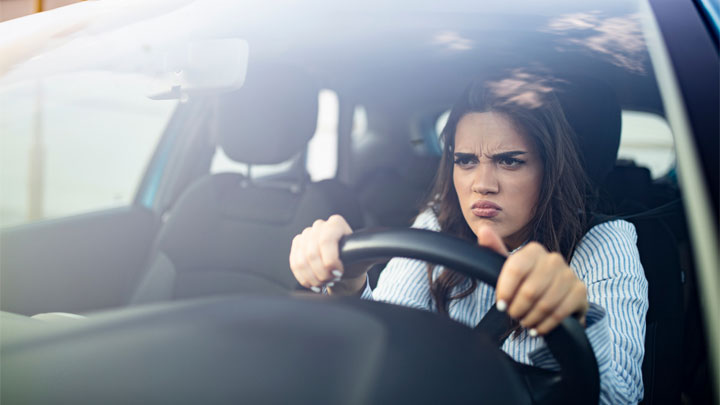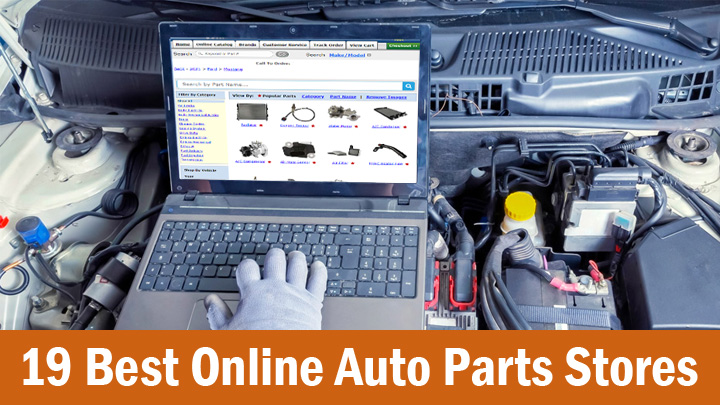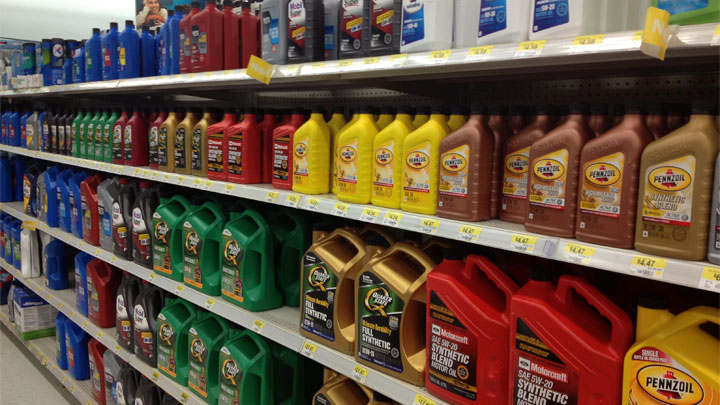Last Updated on August 26, 2022
When you take your vehicle in for new brakes, the last thing you expect to happen is to hear them squeaking or squealing again when you get home. But what does it mean when that’s happening? Is it normal, or did the repair shop do a bad job?
The truth is that it depends on a variety of factors, and that’s why we came up with this guide to help you better understand what’s going on. Because while you might need to take it back to the repair shop, or find a new one, sometimes it’s a perfectly normal condition.
Is It Normal for New Brakes To Squeak?
While it’s perfectly normal for some brake pads to squeak, the last thing you want to do is ignore it and assume everything is fine. That’s because while it can be a normal condition, it could also be trying to tell you that something pretty serious is going on.
So, if you hear your brake pads squeaking, consider all the following potential causes, and if something doesn’t seem or feel right, take a look or take it to a mechanic to have them look at the brakes.
Causes of Squeaky Brakes
There are a few potential causes of new brakes squealing or squeaking when you use them. Below we’ve highlighted the five most common and how you can tell if that’s what’s going on with your brakes.
#1 – Cheap Brake Pads
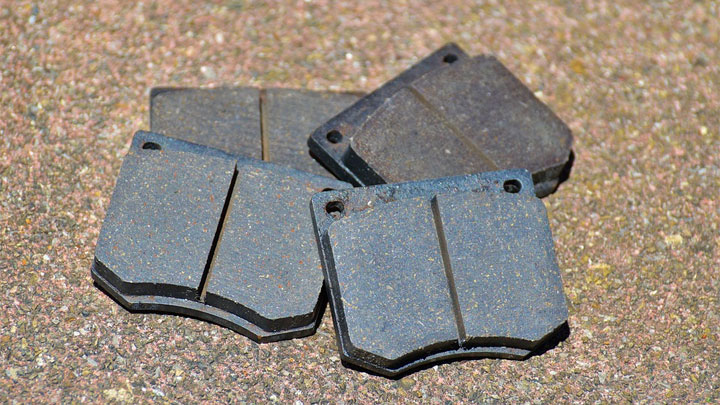
When we say “cheap” brake pads, we don’t want to give you the wrong impression. Semi-metallic brake pads do a great job of stopping your vehicle, but lower-end semi-metallic brake pads simply make noise when you hit the brakes.
If you opted for the lower-priced pads, there’s a pretty good chance that’s why you’re not getting the quiet results you want when you hit the brakes.
If you want to avoid this in the future, we recommend going with high-quality ceramic brake pads. Not only do they last longer and improve braking performance, but they’re typically quieter and don’t produce as much brake dust too.
#2 – Improperly Mated Pads
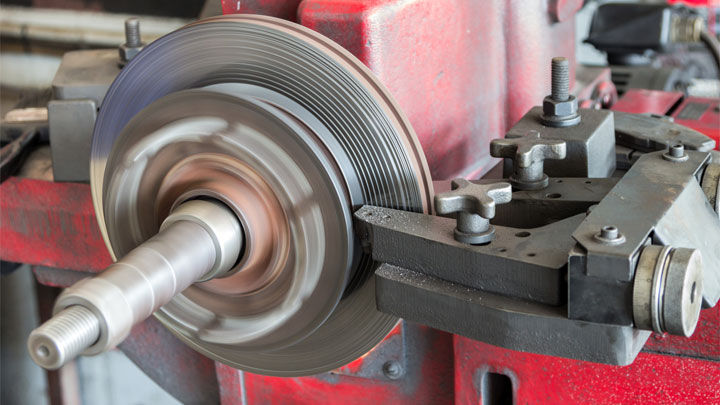
When you get the brake pads replaced, you’re supposed to either replace the rotors or surface them down. This allows the pads to mate with the rotors to get a flush fitment, giving them maximum braking power.
Not only that, but you have to break the pads in for them to work correctly.
If you neglect either of these steps, you’ll lose stopping power, and you might hear squealing or squeaking when you hit the brakes.
#3 – Moisture on the Rotor
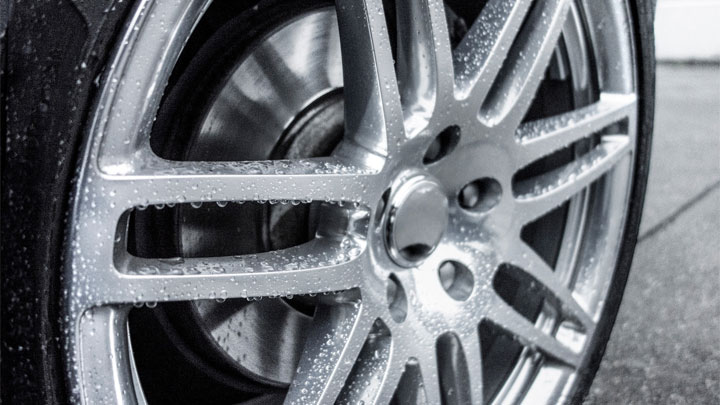
If you head out to your car and hear a squeal in the morning when you hit the brakes, there’s a good chance it’s just the pads squeaking on the morning dew. This is a normal condition, and after you hit the brakes a few times it should go away.
The same can be said after washing your car. Some moisture on the rotor can cause temporary squeaking.
#4 – Dust or Debris Between the Pad and Rotor
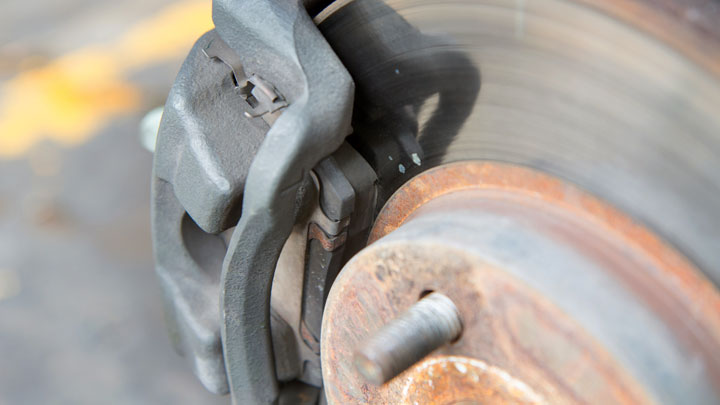
Anytime anything gets between the pad and rotor it’s going to make some noise. A little bit of dust isn’t a big deal, even if it is a bit noisy, but anything else (like a small pebble) can lead to serious problems.
Not only does debris between the pad and rotor make a loud noise, but it will also wear down the pads and rotor quickly and in an uneven manner. Even worse, it can significantly impact braking performance, leading to an accident.
#5 – Rusted Rotor
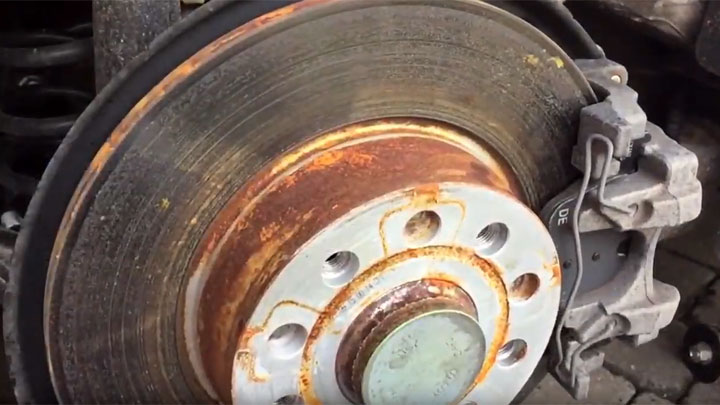
Even if you have new brake pads, that doesn’t necessarily mean you drive the vehicle a lot. If it sits for long periods, then there’s a good chance all you’re hearing is the brake pads wearing the rust off the rotor when you’re driving.
After you hit the road for 5-10 miles you should wear the rust off the rotors, and the squeaking should go away.
Will the Noise Go Away on Its Own?
It depends on what’s going on. If the problem is rusted rotors, moisture on the rotors, or even dust between the rotors and the pads, it’ll go away on its own.
However, if the problem is debris between the pad and rotor, there’s a good chance the problem will stay until someone removes the debris. Meanwhile, improperly mated pads or cheap brake pads mean that the problem won’t go away until you change out the pads and start over.
When To Take Your Car Back to the Repair Shop
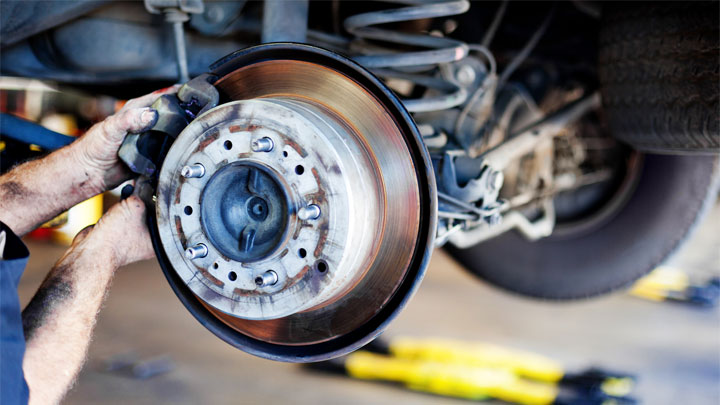
If you feel anything or hear noises beyond squeaking or squealing when you hit the brakes, you should take the vehicle to a mechanic as soon as possible. In addition, if the sound is abnormally loud, then you should take it back to the repair shop too.
While it can be a bit challenging to determine if it’s abnormally loud if you don’t know what an acceptable range is, try to use this as a rule of thumb.
With the windows up and the radio on at a low level, you shouldn’t be able to hear the squeaking or squealing. If you can, either something is going on or shoddy craftsmanship at work. Either way, the repair shop should fix it for you.
Other Brake Noises

While squealing and squeaking are two types of brake noises you might hear, they’re not the only ones. Below we’ve highlighted three other brake noises you might hear and gave you a quick rundown of what each one means and what you should do if you hear them.
#1 – Grinding
If you hear a grinding noise when you hit the brakes, that indicates a major problem. That’s because when you hear grinding it’s typically a metal-on-metal contact. The calipers might be hitting the brakes, or there’s something else going on.
If you have new brakes and you hear a grinding noise, take it straight back to the mechanic and have them fix it for you. You should inspect the work too, because metal-on-metal grinding can quickly lead to further damages, and they should fix those for you too.
#2 – Thumping
Thumping noises typically occur when you have warped rotors. If you didn’t choose to replace the rotors, but the repair shop surfaced them for you, that means they messed the job up.
If you choose to skip the rotors altogether, it’s probably not the repair shop’s fault and you just need new rotors.
#3 – Rattling
If you have new brake pads and you hear a rattling noise when you hit the brakes, one of three things happened.
- First, the repair shop might’ve lied to you and charged you for replacing the brakes when they really didn’t.
- Second, they might have forgotten to tighten something back up.
- Finally, you might have a broken component. This could be anything from a bolt to a caliper, but either way, it’s a pretty big deal and if it just started when you left the repair shop, they probably did it.
Either way, it’s a serious problem and you should head back to the repair shop and see what they have to say. If you suspect that there are loose components on your brakes, we highly recommend not driving the vehicle until it’s fixed.

